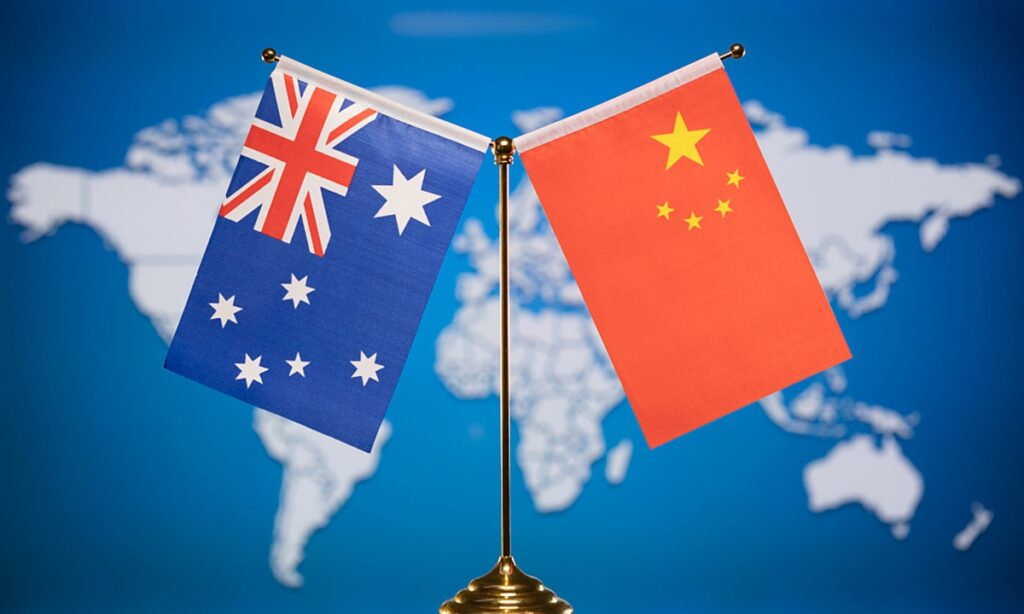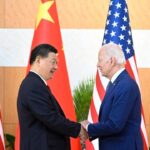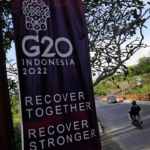Experts urge Canberra to show sincerity and wisdom in taking actions
In the first face-to-face meeting between top officials from China and Australia in three years, Chinese Premier Li Keqiang said while meeting with Australian Prime Minister Anthony Albanese that China is ready to meet Australia halfway and work together to promote sustained and healthy ties, amid a series of positive signals that Canberra has sent over recent days in a bid to patch up an icy relationship with Beijing in the past few years.
On the occasion of the 50th anniversary of the establishment of diplomatic relations between the China and Australia, experts said recent frequent interactions signal a major turning point for both to “come out of the cold.” However, Australia must show its sincerity and wisdom in properly dealing with its relations with both the US and China.
At a gala dinner in Cambodia, Li and Albanese opened the first leader-to-leader dialogue between the two countries since 2019. Albanese told Li that his country is willing to strengthen high-level exchanges with China and jointly promote the healthy development of bilateral relations.
“I had a great conversation with Premier Li. It was very positive and constructive,” Albanese told reporters on Sunday after the meeting, AFP reported.
In another latest effort to ease tensions with China, Australian Foreign Minister Penny Wong, in her first major policy speech, blamed the previous coalition government for the breakdown of relations with China, saying that Labor would “seek to cooperate where we can,” Australia-based SBS News reported on Sunday.
Since taking office, Wong has met with Chinese State Councilor and Foreign Minister Wang Yi twice to reestablish dialogue mechanism. “In those meetings, I expressed Australia’s views candidly on a range of bilateral trade, consular and human rights issues, as well as regional and international security,” Wong noted, SBS News reported.
On November 8, Wang Yi said in a phone call with Wong that the two sides have far more common interests than differences, while further reiterating each other’s important position as comprehensive strategic partners.
The frequent high-level interactions between the two sides have brought a significant change from the stalemate that has been in place since 2019, experts said.
“It marks a coming out of the cold between Beijing and Canberra, as both sides have expressed their willingness to improve relations in dialogue,” Chen Hong, president of the Chinese Association of Australian Studies, told the Global Times on Monday.
Albanese, arriving in Bali for the G20 leaders’ summit, announced on Monday that he will hold a bilateral meeting with Chinese President Xi Jinping on Tuesday, Reuters reported.
When asked to confirm the meeting, Chinese Foreign Ministry spokesperson Mao Ning gave no related information, but said that the improvement in China-Australia ties is in line with the fundamental interests of both sides, the common expectations of the two peoples as well as those of the international community.
Such high-level interactions, possibly even between the two heads of state, can be regarded as a top-down change and a major turning point in their relationship, observers said.
However, they noted that while the downward trend has been effectively stopped, there is still only limited room for improvement.
Zhou Fangyin, a research fellow at the Guangdong Institute for International Strategies, told the Global Times on Monday that Australia is an important ally of the US and a key member of the US “Indo-Pacific Strategy,” a structural constraint that makes it difficult for Australia to significantly improve its ties with China. At the same time, there has been no major shift in Australia’s public opinion toward China.
Australia will not stop following the US, but the country needs the wisdom to properly deal with its relations with both the US and China. “Recklessly and blindly taking sides with Washington would not only undermine China-Australia relations, but also damage its own regional and global interests,” Chen noted.
Australian Trade Minister Don Farrell said they are willing to discuss “off-ramps” with China instead of forcing a WTO decision on the current trade disputes between the two countries, Bloomberg reported. However, the minister said that no matter what happens at the WTO, Australian businesses were looking at “minimizing risk exposure” by diversifying away from the Chinese market.
“Farrell’s remarks are in fact a euphemism for ‘decoupling’ with China, and that in itself falls again into a Cold War mentality. There is no way to replace a market as huge as that of China, and it is only wise for Australia to show its sincerity in going in the same direction as China,” Chen urged.
At the just-concluded 5th China International Import Expo (CIIE) in Shanghai, Australian companies were seen actively participating in the world’s biggest import fair, with new deals inked.
The Global Times learned that Australian firms were among the most active participants at this year’s CIIE, with 64 companies in sectors ranging from agricultural products to mining participating in the event.
China is the No.1 export market for Australian iron ore, with more than 60 percent of it going to the Chinese market, making the sector part of the backbone of Australia’s economy.
China is also the major market for other Australian goods ranging from wine to beef and lobsters.
(Global Times)




